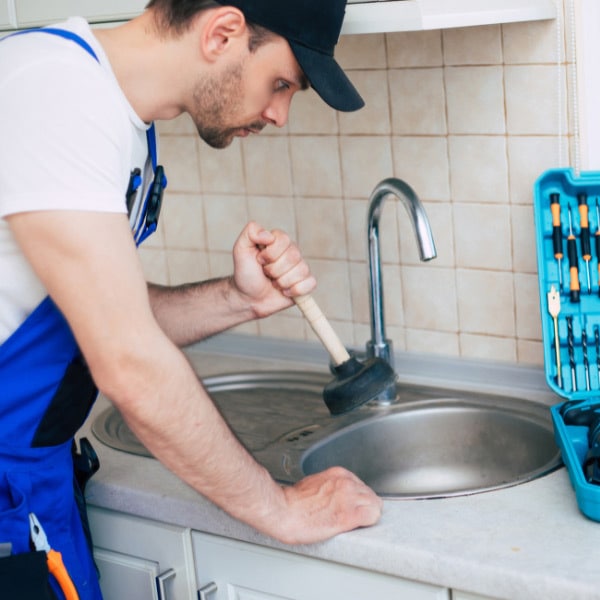A slow-draining sink is one of those common household annoyances that can quickly turn into a bigger problem if left unchecked. Whether it’s your kitchen or bathroom sink, a sluggish drain usually signals a clog or buildup somewhere in your pipes. The good news is that understanding the causes and knowing how to fix or prevent slow drains can keep your plumbing running smoothly without stress or costly repairs.
What Causes a Sink to Drain Slowly?
Most slow drains happen because of debris trapped in the drainpipes. In the kitchen, grease, food scraps, and soap buildup can stick to pipe walls and restrict water flow. In the bathroom, hair, soap scum, toothpaste, and skin cells often combine to form clogs. Sometimes small objects accidentally dropped down the drain can also block the pipes.
Another common cause is a blocked or dirty P-trap—the curved pipe under your sink designed to hold water and keep sewer gases from coming up. When debris collects there, water can’t pass freely, causing slow drainage.
Is a Slow Drain a Sign of a Bigger Problem?
Sometimes a slow drain is just a minor clog you can fix with simple tools. But if your sink backs up frequently or drains very slowly, it could be a sign of a deeper issue, like a clog in the main sewer line or vent pipe problems that affect drainage.
How Can I Fix a Slow-Draining Sink?
Start with simple DIY fixes. Using a plunger or a drain snake can often clear blockages near the surface. Baking soda and vinegar treatments are popular natural options to break down grease and buildup gently. Avoid harsh chemical drain cleaners—they can damage pipes over time.
If these don’t work, it’s best to call a professional plumber who can inspect your drains with a camera and clear tougher blockages safely.
How Can I Prevent My Sink from Draining Slowly?
Prevention is key. Avoid pouring grease or oil down your kitchen sink, and use strainers to catch food scraps and hair. Regularly clean your sink drains with safe natural cleaners like baking soda and vinegar. Keeping the P-trap clean can also make a big difference in flow.
When Should I Call a Professional?
If your sink is draining slowly despite your efforts, or you notice foul odors, water backing up, or gurgling noises, it’s time to get expert help. A professional plumber can find hidden clogs and fix plumbing issues before they become emergencies.
Summary
Slow sink drains are a common hassle but often easy to fix or prevent. By understanding what causes slow drainage and practicing good habits, you can keep your plumbing working well and avoid costly repairs. If you’re dealing with a stubborn clog or suspect a bigger problem, Fix & Flow is ready to help with trusted, professional plumbing services.
